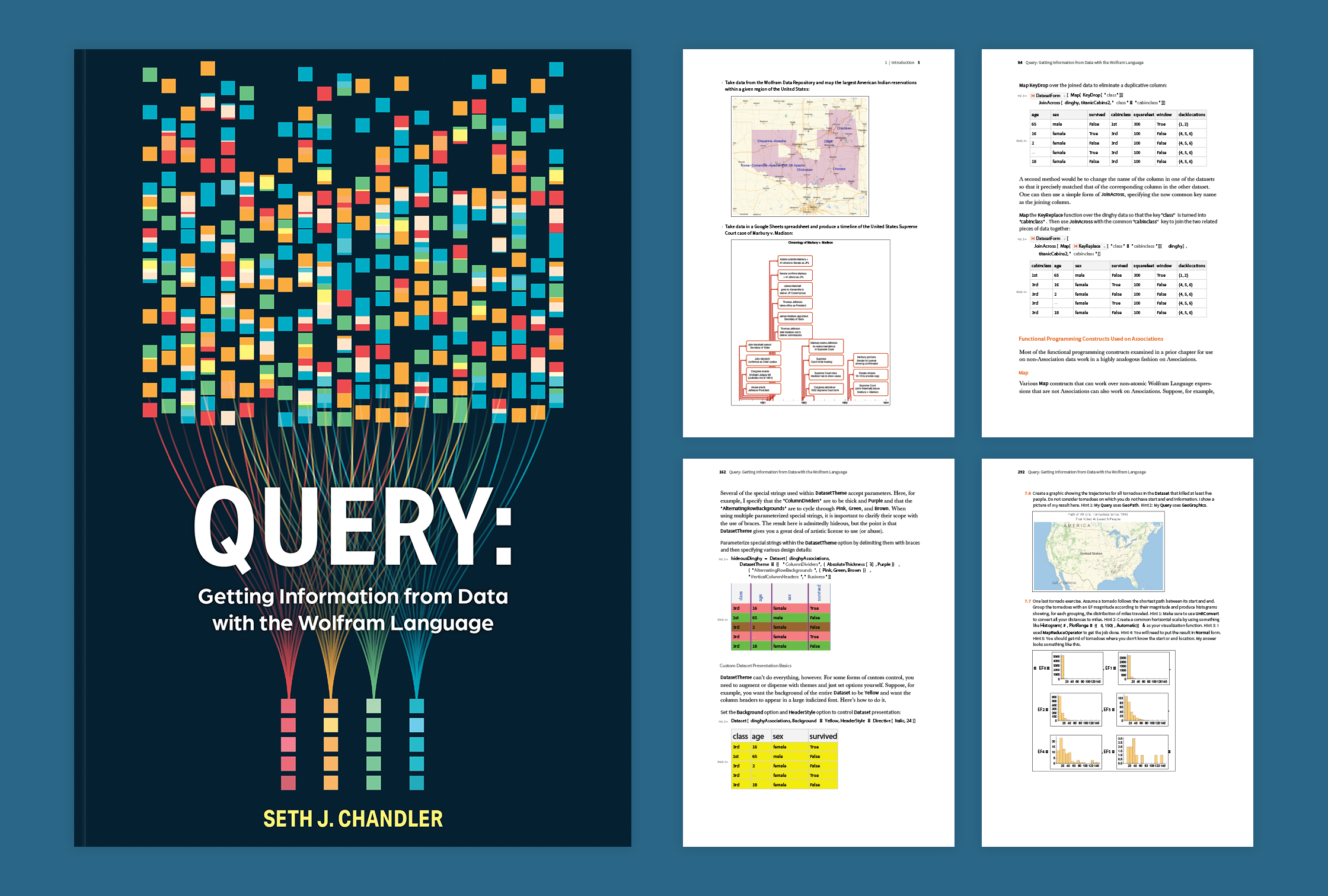
Seth Chandler has a new book coming out tomorrow from Wolfram Media!
Mathematica and the Wolfram Language provide an integrated environment for sophisticated programming, making them the ideal tools for calculus, data visualization, machine learning, and more. But how about using Wolfram as the linchpin for organizing data? In this book, Professor Seth J. Chandler, an award-winning, 30-year user of the Wolfram Language, guides intermediate users from simple cases to data in the wild and shows how each can be fed into the full range of Wolfram Language functionality. It's both a conceptual and practical approach filled with annotated examples.
ORDER NOW: https://www.amazon.com/Query-Getting-Information-Wolfram-Language/dp/1579550851
Want to know more about associations or the organization and presentation of datasets? This book shows how it's done. Want to organize or reduce data in the Wolfram Language similarly to the way one might use SQL, pandas in Python, or dplyr in R's tidyverse? This book shows how to simplify data processing and go beyond what is possible with other tools using the Query function. It also explores how to import information from the places real-world data is most likely to be found: CSV, Excel, or JSON files.